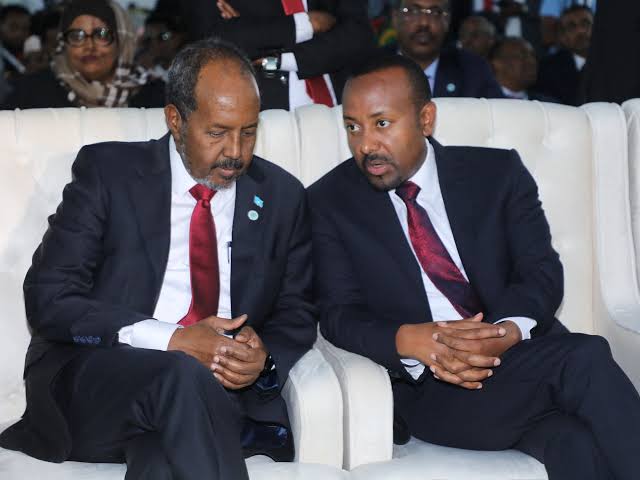Facebook Twitter (X) Instagram Somali Magazine - People's Magazine
After months of escalating tensions between Ethiopia and Somalia, leaders from both nations have announced progress toward resolving their feud, following mediation efforts by Turkish President Recep Tayyip Erdoğan. The discord, which saw threats of military action and alliances with regional rivals, had raised fears of proxy wars and a potential resurgence of militant groups like al-Shabaab.
Background: Rising Tensions in the Horn of Africa
The conflict began intensifying earlier in 2024 when Somalia’s government threatened to expel Ethiopian troops deployed to combat al-Shabaab. Ethiopia, in turn, openly considered supporting factions opposing the Somali administration. In a provocative move, Somalia aligned with Ethiopia’s regional adversaries, Egypt and Eritrea. This period of hostility caused significant alarm among international observers, concerned that the rift could destabilize the Horn of Africa further.
Turkish Mediation Efforts
At the heart of the resolution process was a summit in Ankara on December 11, hosted by Erdoğan. The Turkish leader brought together Ethiopian Prime Minister Abiy Ahmed and Somali President Hassan Sheikh Mohamud. Both leaders expressed optimism after the meeting, emphasizing their commitment to de-escalation and renewed cooperation.
Erdoğan, known for leveraging diplomacy to enhance Turkey’s regional influence, urged both parties to prioritize stability and security. Observers noted that his mediation efforts were aimed at protecting Turkey’s investments in infrastructure and trade in the region.
Lingering Doubts and Challenges
Despite the optimism, analysts remain skeptical about the long-term durability of the peace deal. The political dynamics in the Horn of Africa are notoriously fluid, with alliances and rivalries shifting frequently.
Additionally, domestic pressures in both countries could undermine the agreement. Ethiopia faces internal challenges, including ethnic conflicts and political instability. Somalia, on the other hand, continues to grapple with al-Shabaab’s persistent threat and struggles to maintain centralized control.
The Role of Regional and International Powers
This rapprochement has broader implications for the Horn of Africa. Other nations, such as Kenya and Djibouti, have cautiously welcomed the developments, seeing an opportunity for regional cooperation. However, rivalries between larger powers, including Egypt, Eritrea, and Gulf states, could still disrupt the fragile peace.
Future Prospects
Both leaders have committed to follow-up discussions, aiming to bolster trade, security cooperation, and mutual trust. The international community, including the African Union and United Nations, has pledged support to ensure the peace process succeeds.
While it is too early to declare a lasting resolution, the Ankara meeting marks a critical first step toward stabilizing one of Africa’s most volatile regions.

